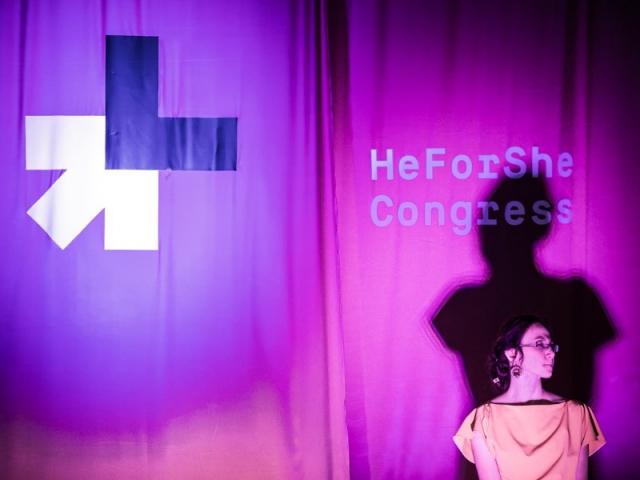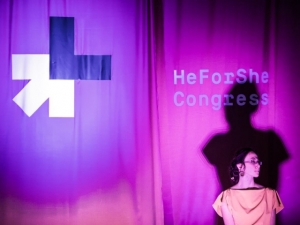New Study On Gender Equality in the Creative Industries
Late last year the British Council commissioned a study on gender equality in the creative industries in the EU’s Eastern Neighborhood titled “Gender Equality and Empowerment of Women and Men in Cultural and Creative Industries.” Researchers interviewed more than 500 people in Georgia, Armenia, Azerbaijan, and Ukraine.
The report was presented by the British Council at the HeForShe conference in Kyiv.
The study was produced by a team of nine experts who organized focus groups, conducted online polls, and interviewed opinion leaders in each target country.
Major findings include:
- Women are less confident than men on average and have lower self-esteem. Women’s lower salaries were often blamed on the idea that women are less likely to ask for a raise.
- Women are more represented in the fields of culture and art which are relatively low paying sectors. While men are more represented in creative business fields such as architecture and IT. Men are often reluctant to pursue careers in the arts due to the impression that they will not earn enough money to support a family. Men feel cultural pressure to be the main breadwinner of their household.
- Cultural barriers, in particularly the stereotype that a woman’s place is at home, often hinders her career advancement. The worst effects of this stereotype are seen in Armenia and Azerbaijan, where it is the most difficult for housewives to become entrepreneurs due to public pressure, expectations and their cultural upbringing.
- Gender roles and stereotypes prevent both men and women from independently choosing their life path, as many jobs are gendered – that is, considered to be ‘not for females’ or ‘not for males.’
Program manager Iryna Prokofieva notes that people largely recognize professional inequalities, but rarely attribute them to gender. She explained, “Most people consider that there is no acute problem. As if, other factors are affecting the inequality. It is either a personal choice of an individual (say, when a woman is not successful in her career), or different skills, while gender ranks only third. The same was evidenced by most of the polls and focus groups. The respondents claimed that there is no inequality in their respective countries. However, when they were asked specific questions, they demonstrated a completely opposite situation. In fact, they showed gender discrimination even though they often did not realize that it was it.”
“One of the most vivid examples from Azerbaijan: a female architect saw the workers in her site wrapping fish into her blue print. This is how they tried to give her a hint of not taking her seriously as a professional,” noted Prokofieva.
Study coordinator Kateryna Kravchuk came away from the research with several impressions.
“The words “gender” and “discrimination” scared people off meeting with us as well as from communication in general. Therefore, we have decided not to put direct questions, such as ‘Are you being discriminated?’ or ‘Is there gender inequality?’ etc., but to ask more general questions, for instance: ‘What situations do you find yourself in?’, ‘What is your experience?’ and ‘What is the experience of your colleagues?’” she explained.
Many respondents perceived gender as “an artificial concept.” Kravchuk noted, “As if, the West wants us to speak about gender. Even the artists told us that they are being given grants to create artwork on gender, while less attention is paid to the value of the art that they create. It is also a popular opinion, and in the recommendations section of this report we have included some advice for grantors regarding the need to conduct training for those who communicate these things. It is important to explain that gender does not offset the art itself, while balance, equality and dignity are just as important concepts worth discussing.”
In the World Economic Forum’s 2017 Global Gender Gap Index, Ukraine ranks 61st among 144 countries with respect to gender inequality, with 1 being the highest level of equality. Georgia ranks 94, Armenia 97, and Azerbaijan 98. Three most equal countries for 2017 were Iceland, Norway and Finland. Since 2006, Georgia's score has improved by just 0.009 units, but its ranking has dropped from 54th place in 2006 as other countries' scores improved much faster.
The full report is available for download here.
By Samantha Guthrie
Photo: EU Culture Partnership












